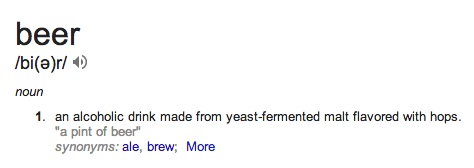We realized that we’ve actually written this weekly column for the whole semester to ostensibly advocate for beer. We’ve maybe failed, though, to actually educate you about beer itself rather than our own shortcomings and buzzed revelry. So, a lesson in beer.
Lucy considers herself to be something of an amateur scientist. Taryn considers Lucy to be a real scientist. Let’s not get too ahead of ourselves. Regardless, we’re going to follow the scientific method in this column. As a result, this will be both a lesson in beer and a lesson in (amateur) science. Thanks, Olin-Rice, for swallowing our souls.

Motivation: Beer is fun. Beer tastes good. Beer makes you drunk, if you like that. Beer is varied. Beer is weird. Beer is bougie sometimes. Beer is fermented. That’s enough motivation.
Research question: What is beer? How does it work? What are the types? Etc.
Background: According to the internet, beer is Nature’s gift. Also, Wikipedia tells us that beer is an alcoholic beverage produced by the saccharification of starch and fermentation of the resulting sugar. What’s more, beer is ancient – it’s even regulated in the Code of Hammurabi. It seems safe to say that beer and humans co-evolved (Kristi Curry Rogers might dispute our use of the word “evolved”). This leads to a (drunk) question: is beer alive? Yeast metabolizes, right? We’ll let you figure it out.
Methods: Drink beer. Think about beer. Google beer. Imagine beer. If Taryn can get up the guts, talk to the pretty bartender about beer.
Results: Beer is sweet nectar. But really, that only describes lagers. Surly Furious? Not sweet. Actually bitterly bitter. We’ve learned that there are two broad classifications of beer: ale and lager. The difference between the two is how they are brewed – ales are quickly fermented at warm temperatures, whereas lagers are fermented longer and colder. Most modern lagers are Pilsners (think Budweiser, Coors, and other brews of that ilk). Taryn and Lucy like ales, nearly exclusively. You probably do too. If you don’t, well, try harder. But Taryn wants you to know that you are still loved. Lucy has little sympathy.
Discussion: The most important categorization of beer is not the lager-ale divide. It’s not even unintelligible subdivisions like IPA, EPA, DIPA, TIPA, APA, EPA 2.0, MLA, APA 2.0, Chicago, etc. What matter most is whether the beer is good or bad. The individual ingredients don’t make the beer. What makes a beer is art and fusion and something we can’t yet quantify but propose as the subject of further scholarship like you’re supposed to do in scientific papers.
Conclusion: Why, when we sit down with our varied and valuable LTBC guests, do they all order such diverse beer selections? What is the secret of beer? While this brief study does not answer this question, it does maybe make you smile. Just like beer, coincidentally. And possibly helps you contextualize beer within its social, political, economic, environmental, and emotional contexts. Or not. In any case, drink some, if you like it.
Editor’s note: Not all pilsners are akin to the domestic giants like Bud, etc. You can find a good, refreshing and simple pilsner.






Joe Young • Sep 12, 2019 at 4:38 am
What’s up colleagues, is there any other pleasant weblog related to JavaScript articles or reviews, while this one is pleasant designed for PHP programming.
Emma Lewis • Sep 10, 2019 at 9:58 pm
Hello there! This is my first visit to your blog! We are a team of volunteers and starting a new project in a community in the same niche. Your blog provided us beneficial information to work on. You have done a marvellous job!
Keith Ferguson • Sep 9, 2019 at 12:35 pm
I have really learned result-oriented things out of your blog post. One more thing to I have observed is that usually, FSBO sellers are going to reject a person. Remember, they might prefer to not use your companies. But if a person maintain a stable, professional partnership, offering help and being in contact for about four to five weeks, you will usually be capable of win a business interview. From there, a listing follows. Thank you